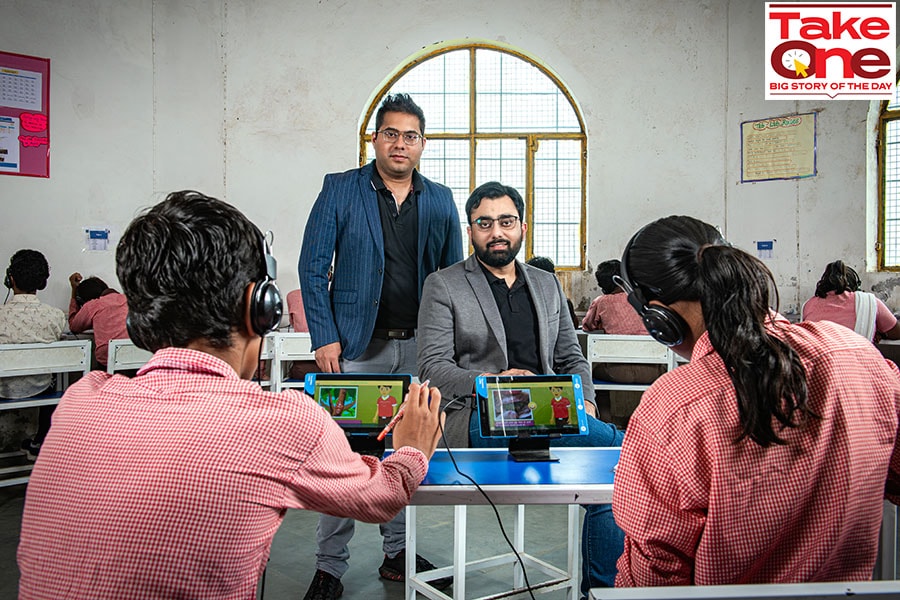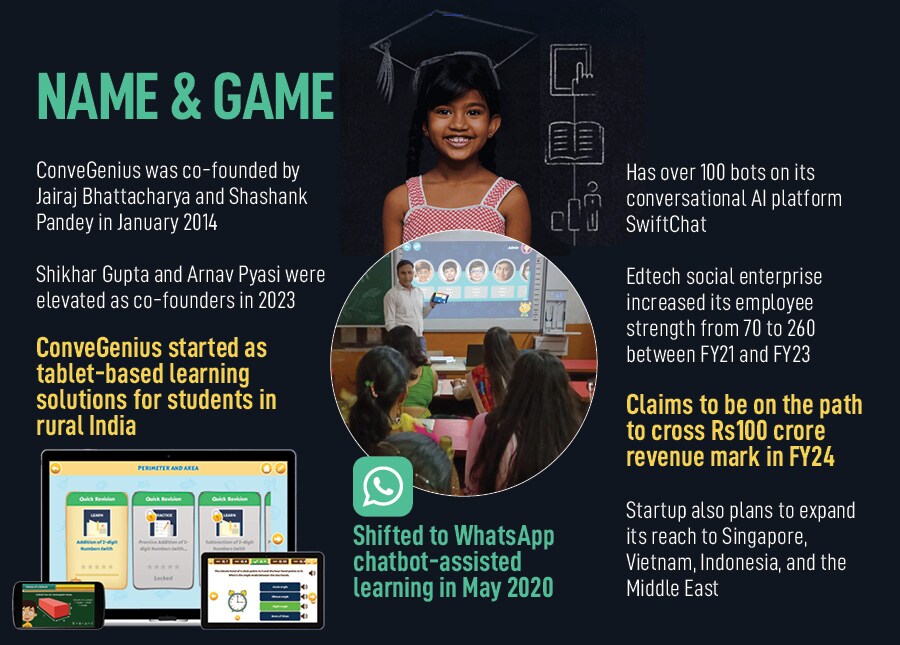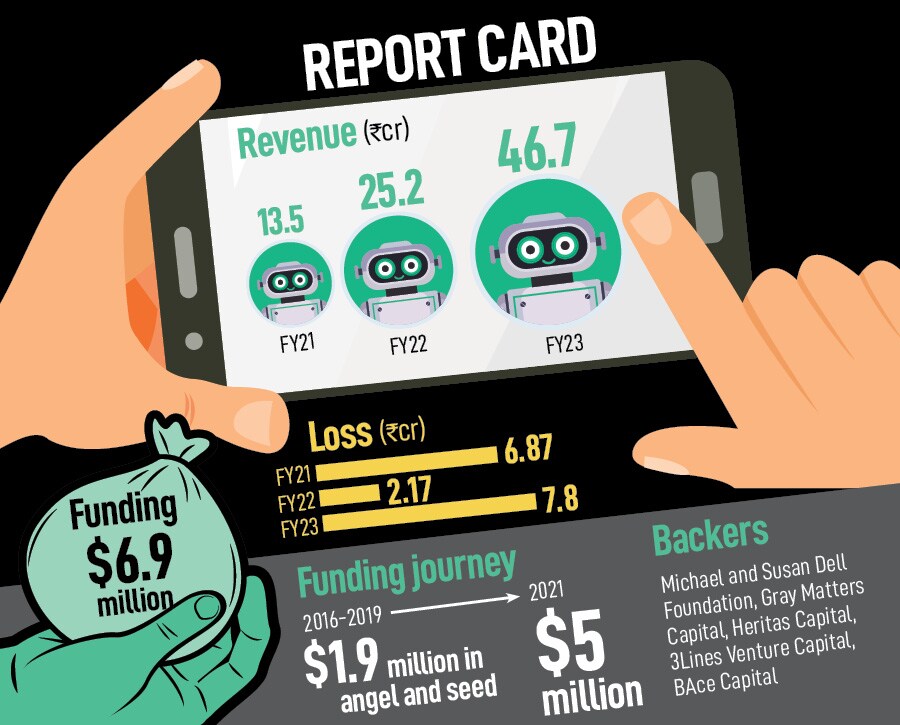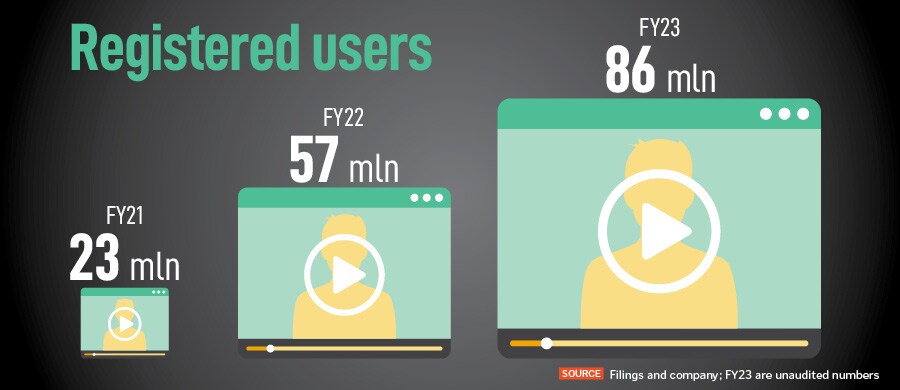
Decoding ConveGenius's 'common sense' edtech playbook
Jairaj Bhattacharya and Shashank Pandey never had a fairy tale story to woo investors. But that limitation turned into an asset when the social enterprise founders started navigating the edtech storm
 Jairaj Bhattacharya and Shashank Pandey (sitting), Cofounders, ConveGenius
Image: Amit Verma
Jairaj Bhattacharya and Shashank Pandey (sitting), Cofounders, ConveGenius
Image: Amit Verma
“Nobody ever pushed us saying ‘uthao, uthao, uthao (raise, raise, raise),” says Jairaj Bhattacharya, alluding to an absence of investor pressure to raise more money even during the ‘eccentric’ year of 2021 when India’s edtech sector saw an inflow of a record $4.1 billion funding. “We never had this sense of missing out,” says the co-founder and managing director of ConveGenius, an edtech social enterprise. “Was it ‘sense of missing out’ or fear of missing out (FOMO),” I ask. “Sense,” comes a terse one-word reply. “We always had a sense of who were, and what we were doing,” underlines Bhattacharya.
Back in 2014, when Bhattacharya ventured into the social enterprise and impact segment of edtech with Shashank Pandey, the duo had a fair sense of the ground reality. The engineering graduates from International Institute of Information Technology, Hyderabad, knew they were not ‘conventional’ edtech founders when they started ConveGenius. With their social enterprise, the founders wanted to provide high-quality educational content to children in 100 million middle-and low-income households in the country.
The duo decide to do it for free. The trigger was common sense. Large enterprises like Google and Facebook had kept their products—Google search and Google maps, and WhatsApp respectively—free in order to achieve massive scale. The rookie founders in India too wanted scale and impact. “We knew our consumers didn’t have the paying capacity,” says Bhattacharya. The sense of being the ‘odd one out’ in an emerging but feverishly growing edtech world always played on the minds of the rookie founders, who remained bootstrapped for two years, didn’t have a fairy-tale story to woo venture capitalists (VCs), and knew that only a bunch of impact investors would be able to understand their story.

For such a kind of edtech, there were not many takers in 2014. Just a year ago, in September 2013, Byju’s had raised a Series-A round of $9 million, and there were other founders who were trying to cater to students in K-12 and test prep segments. There was money on the table for all kinds of edtech founders except the social impact ones.








 Also read:
Also read: 






